What is success and how do you achieve it? Perhaps one of humanity’s most deep-rooted searches, ‘success’ is the ultimate power card available to each of us. In the search for true self-pride, we humans will push our minds and bodies to their limits. Perhaps that’s why you’re here.
To be successful, you must surely focus on what to do, right? Knowing what to avoid can be just as, if not more helpful. If you don’t know the habits of a typical unsuccessful person, then seeds of unwanted behaviours may grow without you realising. Cutting them out at the root before they’ve had a chance to prosper is a good start.
Finding out the habits of unsuccessful people needn’t be difficult, however. Humans are not perfect, and it’s in our imperfection we find the greatest lessons. By getting things wrong, we’re able to get them correct and be better than ever before.
By taking these traits of unsuccessful people on board, you’re pointing your trajectory for success in the right direction.
Continued Focus on Negativity
Does your brain ever project a cringeworthy or otherwise negative experience into your thoughts? It doesn’t take long for the brain to make itself feel uncomfortable, especially to those struggling with mental wellness issues such as depression and anxiety.
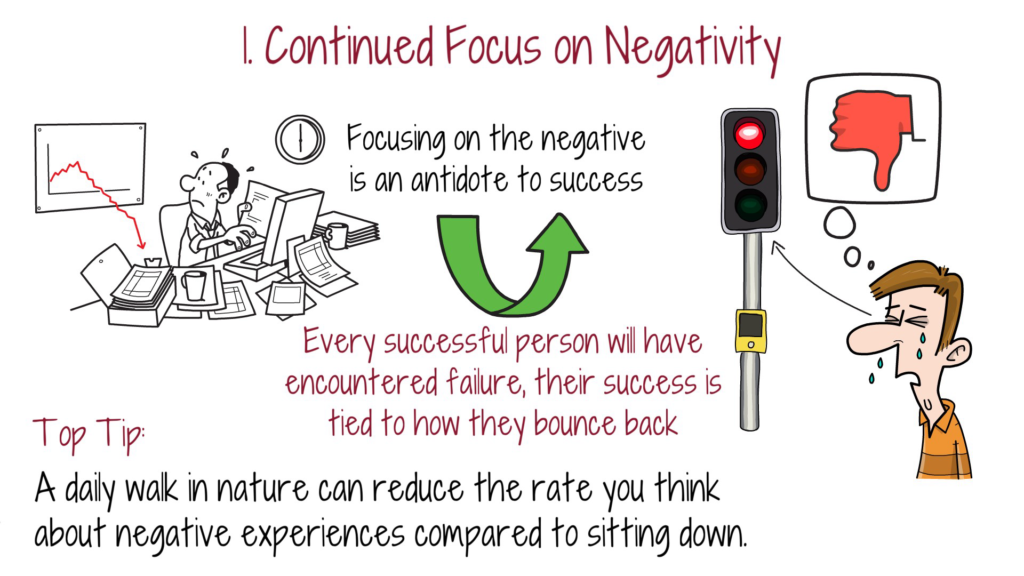
If you look at success in a career-focused environment (which many do), then focusing on the negative is an antidote to success. You risk getting bogged down in something you should have moved on from.
Put it this way, when you’re hurriedly driving to work and get stuck behind a few red lights, suddenly they’re ‘all’ red – your brain fixates on the negative, when in reality many of the lights were likely green.
Besides, every successful person will have encountered failure at some point along the road, their success is tied to how they bounce back. Negativity has no place in your progress.
Top Tip: Research into the benefits of walking has found that a daily walk in nature can reduce the rate you think about negative experiences compared to sitting down.
Not Curious Enough
Without a curious mind, you’re unlikely to find something to make your own. Here’s an example. Let’s say you’re looking for a new career path. You’ve never explored it, but you know you have an aptitude for writing. It’s not something you’ve thought much about, perhaps other than a small personality trait. However, this time, you decide to give it a proper go, writing anything that comes to mind. With more practice comes more skill, and perhaps a love of the craft.
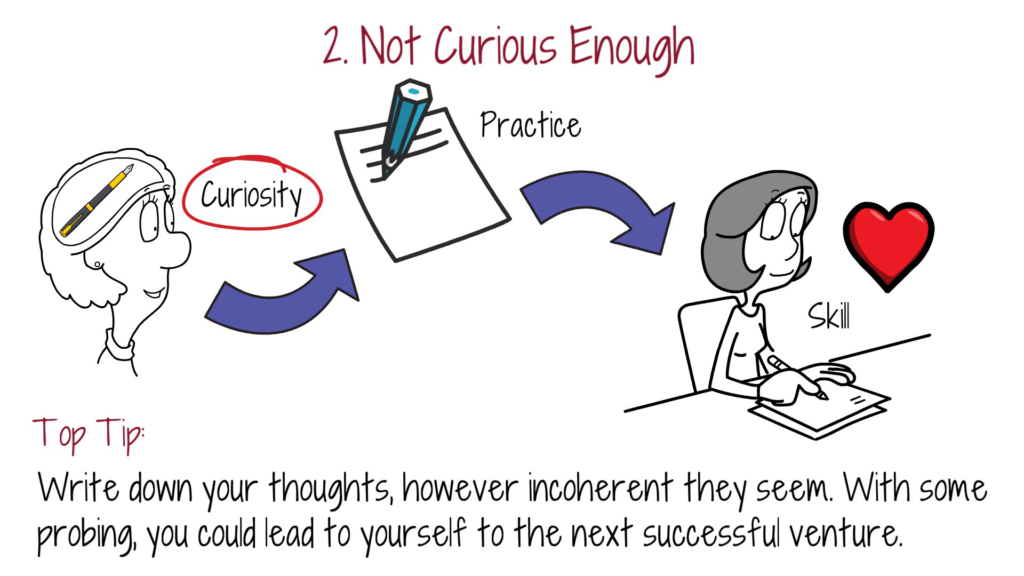
It’s that love, born out of curiosity, that provide the starting blocks for success. Allowing your endevours to run their course is a trait intrinsically paired with success, as you never know what stands out to you.
Top Tip: Instead of idle daydreaming, write down your thoughts, however incoherent they seem to you. With some probing, you could lead to yourself to the next successful venture.
Easily Distracted
In this day and age, you’d be forgiven for feeling more easily distracted than previous generations. Ironically, the success of social media apps relies on your perpetual consumption, something that will lump the heavy burden of distraction on to you.
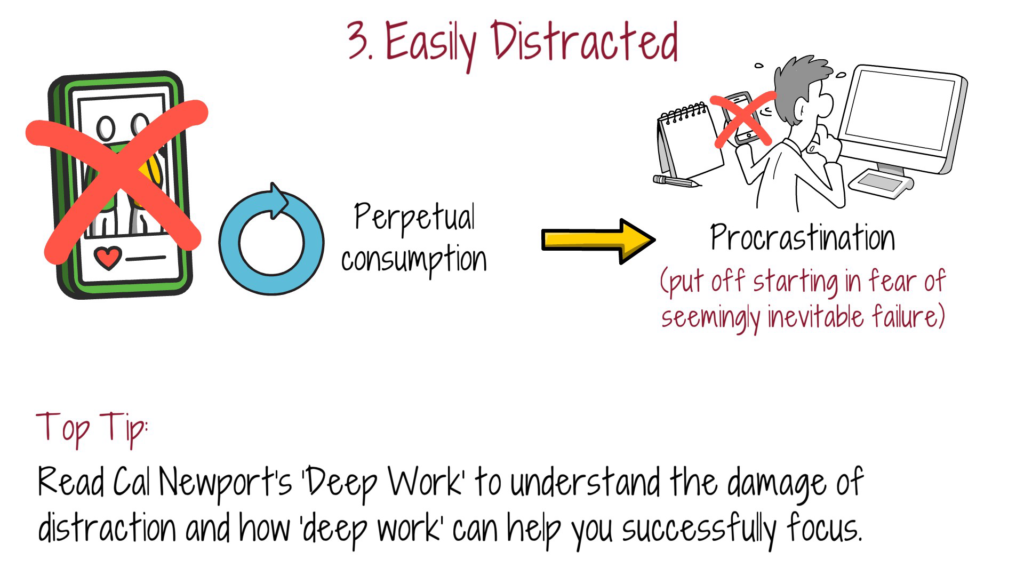
For many, this comes in the form of procrastination – where you’ll do literally anything other than the task that actually requires your attention. This could be brought on by feelings of imperfection and hopelessness, where you put off starting in fear of seemingly inevitable failure.
Getting easily distracted is not a trait you carry with you toward the bright lights of success. Focus is vital in your upward trajectory, so it’s vital to understand why you feel easily distracted. Merely knowing is not enough.
Top Tip: Read up on Cal Newport’s Deep Work to truly understand the damage of distraction and how ‘deep work’ can help you successfully focus.
Give in to Laziness
“Ah, I’ll do it tomorrow.”
We’ve all been there. A task that, in the moment, feels impossible.
That’s future you’s problem, right?
Well, yes, but that’s not helpful for any and all versions of you across the timeline. Pushing tasks of all sizes on to your future self is only going to slow you down. It may feel good to put a task off in the moment, but the second that happens, your future self is looking back and letting out the sigh of all sighs.
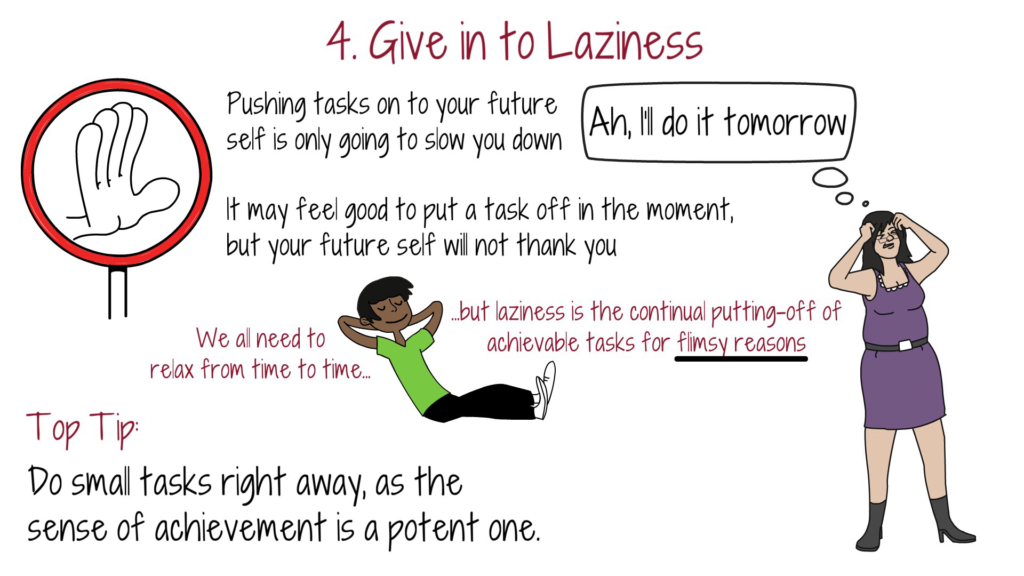
That being said, a successful person doesn’t have to be the most laser-focused, high-energy, immovable being some on LinkedIn might tell you. Laziness isn’t always closing your laptop and putting Netflix on. We all need to relax from time to time. No, laziness is the continual putting-off of achievable tasks for flimsy reasons.
To be successful, your life requires attention. Continual laziness provides the opposite.
Top Tip: Do small tasks right away, as the sense of achievement is a potent one.
Ignoring Your Body
What do legends of sport such as Roger Federer, Serena Williams, Tom Brady, and Lionel Messi all have in common?
Their longevity.
Each is coming to or has reached the end of their careers, leaving behind a legacy for the ages. They managed to do so by staying at the pinnacle of their respective games for a very, very long time, something only possible because they listen to their bodies.
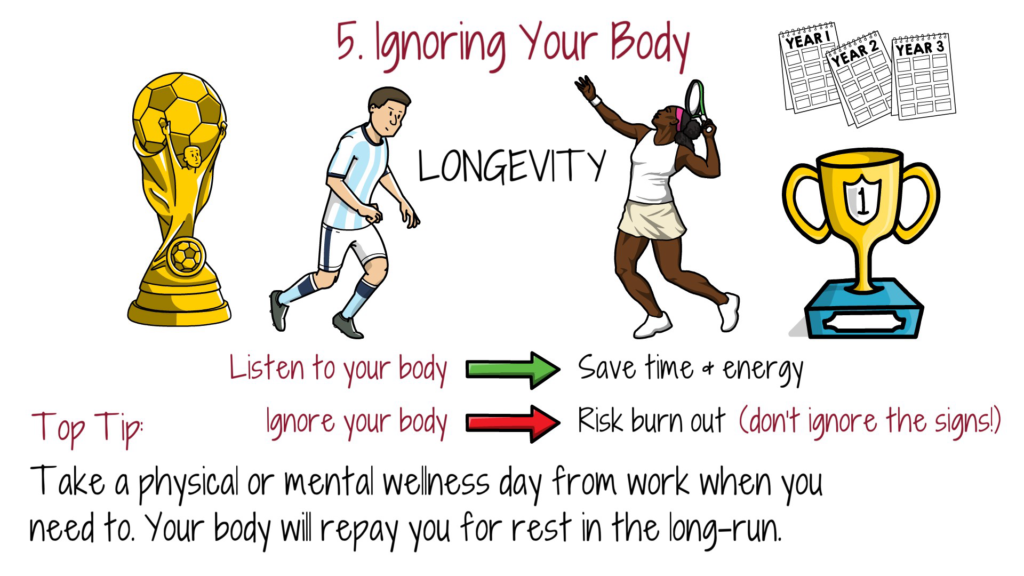
I’m not saying you need to have an athlete-like dedication to and understanding of your body to be successful. Instead, simply listening will save you a great deal of time and energy. Ignore it and you risk burning out.
For example, ignoring the signs can leave lasting damage. If not now, then some time in the future. It’s best not to take that risk.
Top Tip: Although it may feel like it sometimes, it’s not a crime to take a physical or mental wellness day from work, or whatever you do every day. In fact, your body will repay you for rest in the long-run.
Not Knowing Your ‘Why’
It’s all well and good knowing you’re doing something because you want to be successful. But what does that mean to you, truly? Your ‘why’ is your motivation – the reason you get out of bed in the morning. It must be alive and kicking every day.
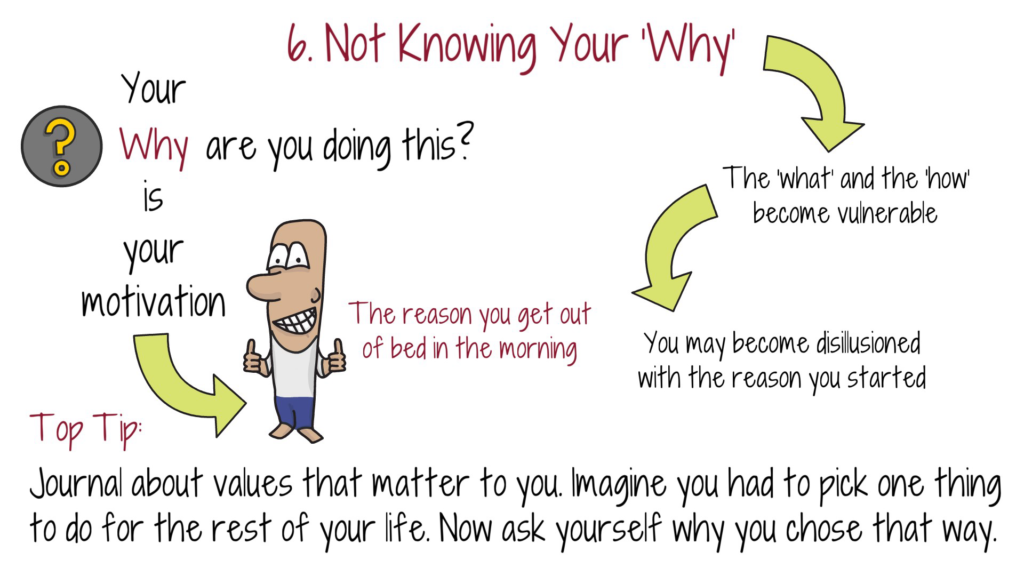
If you don’t know your why, then the what and the how become vulnerable. Every day life will soon lose meaning and you may become disillusioned with the reason you started in the first place.
Top Tip: If you feel you don’t have a reason, journal about the values that matter to you. Imagine you had to pick one thing to do for the rest of your life. Now ask yourself why you chose that way.
Mistaking Help As Weakness
There seems to be a certain sense of pride when someone tells you they’ve done something challenging by themselves, particularly in more individualistic, Western cultures. However, insisting on going it alone when it’s not always required can act as a hindrance to your success.
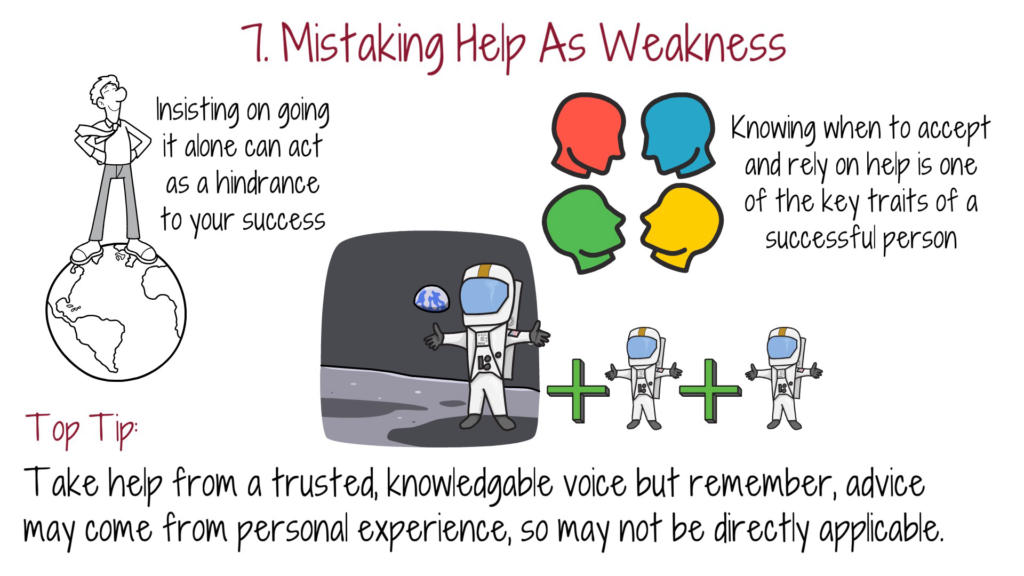
Knowing when to accept and rely on help is one of the key traits of a successful person. Turning it away will eventually push you toward frustration with yourself and perhaps a dent in confidence, even if the high from managing things on your own feels self-sustaining.
Put it this way, you may immediately think of Neil Armstrong as the first man to walk on the moon, but he wouldn’t have done it without Buzz Aldrin and Michael Collins.
Top Tip: Don’t accept help from someone just because they’re offering. Take it from a trusted, knowledgable voice but remember, everyone else’s advice will likely come from personal experience, so it might not be directly applicable to your situation.
Success Isn’t Found in a Single Article
My website is fairly self-explanatory. These articles are designed for you to improve your life. However, as we all know far too well, success isn’t found in a single article. Instead, it’s found in the traits you adopt and avoid. Here’s a quick recap of the 7 traits of unsuccessful people you don’t want to copy:
- Continued focus on negativity
- Not curious enough
- Easily distracted
- Give in to laziness
- Ignoring your body
- Not knowing your ‘why’
- Mistaking help as a weakness.
If implementing successful habits into life is your sword, then knowing what to avoid is your shield. Best of luck.
